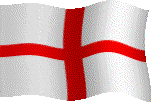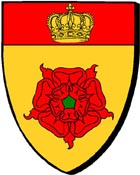Encyclopédie Marikavel-Jean-Claude-EVEN/Encyclopaedia/Enciclopedia/Enzyklopädie/egkuklopaideia

England Bro Saoz |
Ashley Briga |

Hampshire Bro-*** |
| pajenn bet digoret e 2003 | page ouverte en 2003 |
* forum du site Marikavel : Academia Celtica |
dernière mise à jour 13/03/2015 11:33:29 |
![]()
| Définition : ville d'Angleterre; comté d'Hampshire. Ancien établissement romain *Briga. |
|
![]()
|
Extrait de la carte Ordnance Survey : Map of Roman Britain. Le site de *Briga, quelque part non loin au nord-ouest de Winchester, n'est pas indiqué. ( En attente de précisions) |
![]()
Histoire : Nous sommes ici sur le territoire de la tribu des Belgae. |
![]()
| Étymologie :
A. *Briga : * Rivet & Smith, p 277-78 : SOURCE. - Itinéraire d'Antonin, 48612 (Iter XV) : BRIGE (and the same in Iter XII, 483,3, by error of the copyist). DERIVATION. From Celto-Latin *briga. Jackson in Britannia, I (1970), 69, thinks AI's form perhaps Latin nominative plural for British nom. pl. *Brigas. However, the name is best taken as singular, since nominative forms are rare in our sources (other than Ptolemy), and as genitive-locative; compare Abone. Final -e for -ae is a common Vulgar Latin feature. This is a very common Celtic place-name element, surprisingly rare (with this single instance) in Britain, at least in our ancient sources. *Briga means 'hill', often particularised as 'hill-fort'. It seems to belong to an early period of Celtic expansion, through Gaul into Iberia, and to represent an older stratum than dunum; in contrast to the latter, on which see BRANODUNUM, it has been thought to apply to places generally remote from the main roads (Vincent 207). Its antiquity is held by Dauzat TF 198 to be indicatcd by the fact that it is an element in common between Ligurian and Celtic. *Briga rarely appears uncompounded as in the present instance; Jackson expresses surprise that this one carries no suffix. Parallels are provided by Brie in France, certainly from *briga (Bede HE III, 8) but for which no ancient forms are known, and Briges (Lozère, France) < *brigia (plural), on which see L.-F. Flutre in RIO, VIII (1956), 279-80, who also has a general discussion of these names. Brica is a woman's name in RIB 744 (Greta Bridge). The name is also rare as a first element in compounded forms, the only obvious example being Brigobanne (TP; now Hüfingen, Austria; British 'Brigomono' of Ravenna 107,39 = Rerigonium). On the Continent it appears with a variety of suffixes, e.g. Brigetio (Pannonia Superior, now Szöny), Brigaecium (Hispania Tarraconensis), and Brigiosum > Brioux (Vienne, France). It is most common as a second element, for example in Gaul Eburobriga, Litanobriga, and in Spain Mirobriga, Nemetobriga, Segobriga, Holder I. 533 ff. lists many names; for France, see Vincent 207; and in general, M. Richards in EC, XIII (1972), 366 ff. For map of briga names in Europe, see H. Rix in Festschrift für Peter Goessler (Stuttgart, 1954), 104, and S. Piggott, Ancient Europe (Edinburgh, 1965), 172. *Briga is cognate with Germanic berg, hence also with Gothic baurgs, etc., all from an assumed Indo-European *brga. Celtic adjective *brig- 'high' is found in Brigantes and other names. There are derivatives in the modern Celtic languages : Welsh and Breton bre 'hill', Irish bré, while brae has entered English from Scots speech. Not all Continental names in -briga are necessarily of strict origin in Celtic times, for the word was well known in Latin. It was compounded with Latin names to give the high-sounding Augustobriga (two towns) and Flaviobriga in Spain, was often represented as -brica in Latin texts (with hypercorrect -c-) or reduced to -bria in accordance with Vulgar Latin usage, and as a common noun it survived in certain French Alpine dialects as bric- (which supposes an original *bricca). In compounds the element was unstressed, the accent falling on the preceding vowel (-obriga) in Latin, which explains the reduced form in which it survives in many instances. For the Indo-European ramifications, see A. Carnoy in RIO, VI (1954), 8-10. IDENTIFICATION. Probably the Roman settlement south-east of Ashley, Hampshire (SU 4029), just north of Farley Mount. ------------------ Selon ces auteurs, il semble clairement établi que ce nom provient directement de la racine celtique *Briga = colline / colline fortifiée. L'originalité du présent nom, qui peut surprendre et provoquer les discussions, est que la racine est prise seule, n'ayant ni préfixe ni suffixe, comme on la trouve dans la plupart des autres noms de lieux basés sur cette même racine. ------------------ B. Ashley : * Eilert Ekwall, p. 15 : "Asselegh 1275 Ipm". OE aesleah, as a rule no doubt 'ash wood'. > bois de frêne, frênaie. * A.D Mills (2003) : "Esselie, 1086 DB". > ashtree-wood or clearing... "OE aesc + leah" |
![]()
| Sources :
* Eilert Ekwall : The Concise Oxford Dictionary of English place-names. Clarendon Press. Fourth edition, 1980. * Ordnance Survey : Map of Roman Britain. 1956 * ALF Rivet & Colin Smith : The Place-Names of Roman Britain. Batsford Ltd. London. 1979. * A.D MILLS : Oxford Dictionary of British Place-Names. Oxford University Press. 1991 - 2003. |
![]()
|
forum de discussion
* forum du site Marikavel : Academia Celtica hast buan, ma mignonig, karantez vras am
eus evidout go fast, my little friend, I love you very much |
![]()